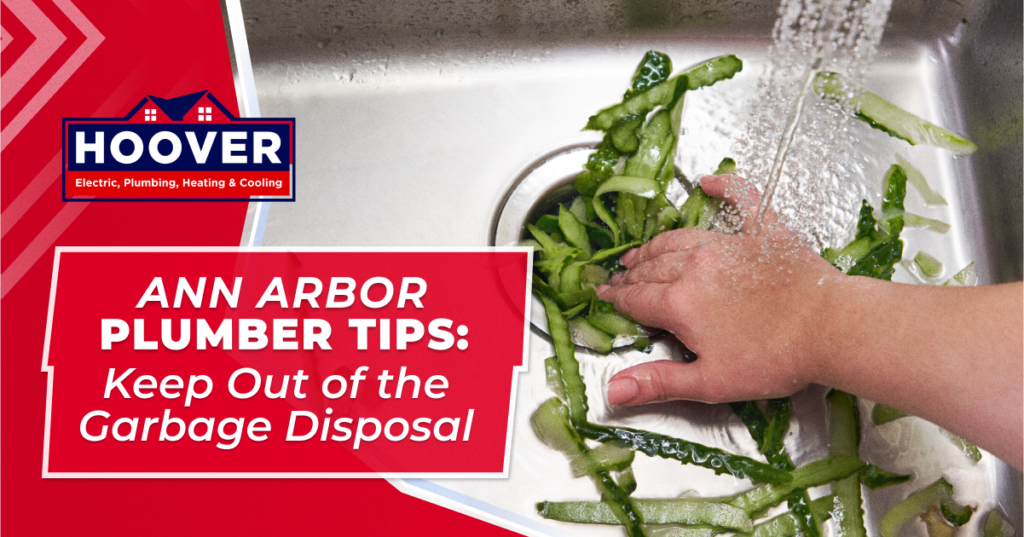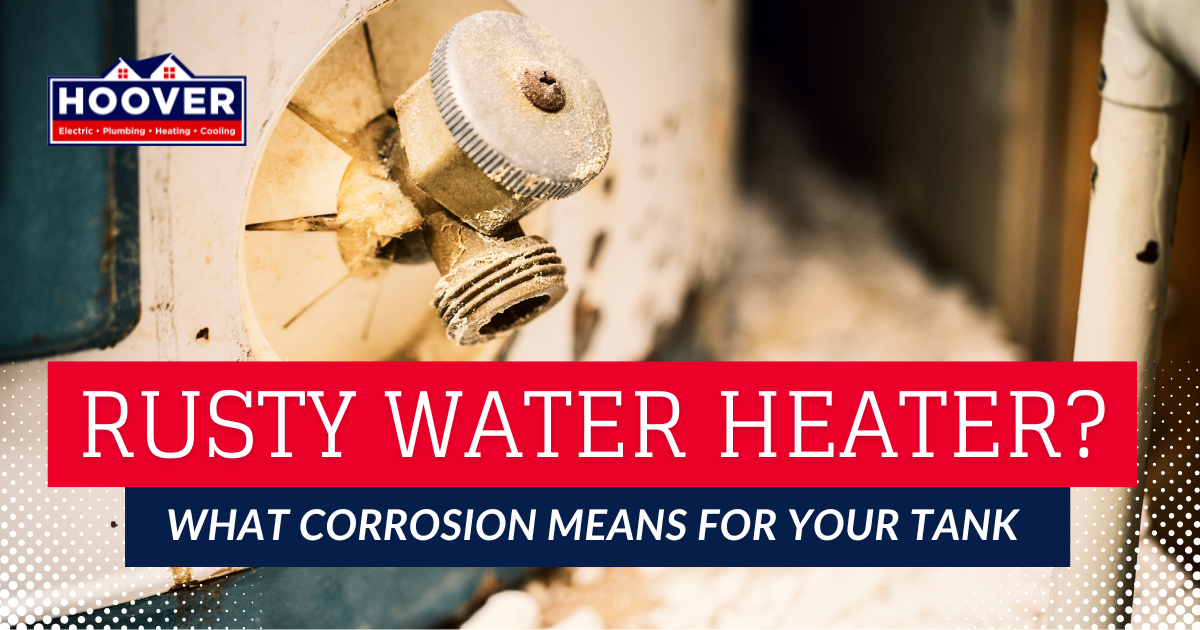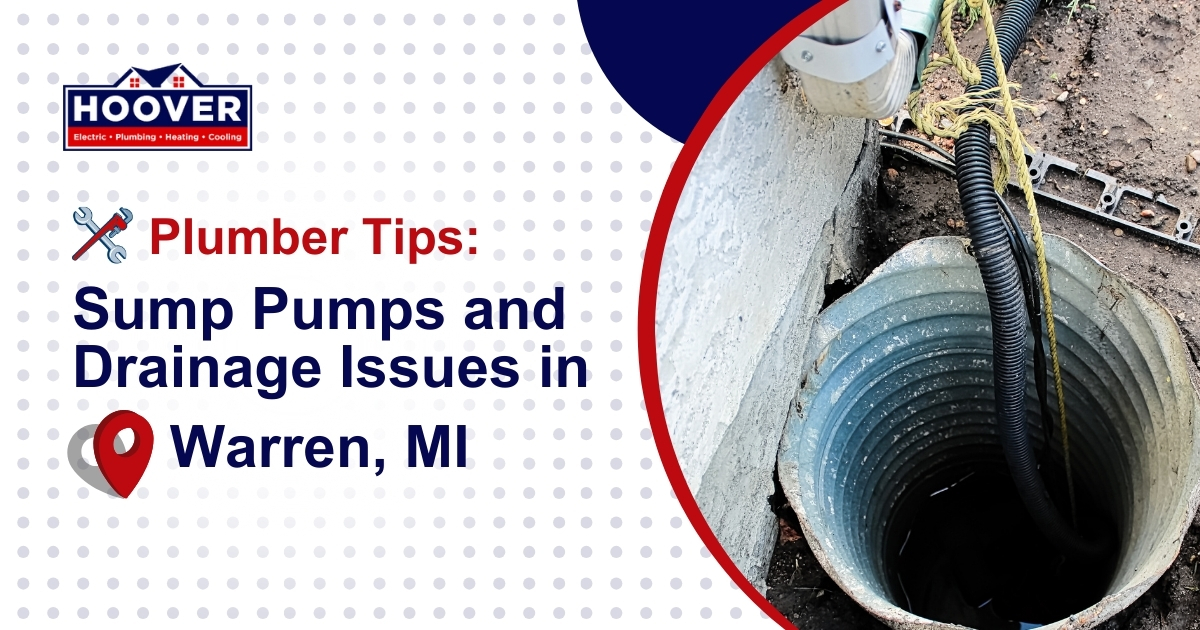
Garbage disposals are handy kitchen appliances in any Ann Arbour home, but they can cause more harm than help without proper use and upkeep. With help from the Hoover team, understanding how to care for your garbage disposal and when to call an Ann Arbor plumber for garbage disposal advice, and concerns helps keep your plumbing flowing the way it should.
Why Proper Garbage Disposal Use Matters
Garbage disposals use a set of rotating blades to grind food waste into smaller pieces, which then flush through your plumbing system. Typically installed under the kitchen sink, garbage disposals help reduce organic kitchen waste from building up quickly in bins.
With proper use, garbage disposals save time and space otherwise occupied by food waste, improving your home’s overall cleanliness. They also reduce the likelihood of blockages from food mistakenly dumped into your sink drain.
Common garbage disposal problems
Improper garbage disposal use can lead to various complications and inconveniences, such as:
- Clogs and blockages
- Damage to the disposal’s blades and motor
- Plumbing system backups and costly repairs
- Foul odors from decaying food buildup
- Leaks from connections
What Should Never Go Down the Garbage Disposal?
While garbage disposals are useful for breaking down food waste, they’re not designed or equipped to handle everything. Certain foods, materials, and items can damage garbage disposals.
Grease, fats, and oils
Grease, fats, and oils may flow down the drain easily in their liquid states. As they cool, however, they solidify, congealing on the pipe walls, narrowing and sometimes blocking them altogether. These blockages are often stubborn and difficult to clear.
Instead of pouring cooking grease or oils down the drain, pour them into a separate container and dispose of them separately. Make sure to use a metal container for hot grease and oil — plastic and glass containers may break or melt from the heat.
Fibrous foods
Celery, corn husks, banana peels, and similarly fibrous foods can be problematic for garbage disposals. These types of food have long and stringy fibers that wrap around disposal blades, causing jamming and clogs.
Consider implementing a composting system for disposing of fibrous foods and other organic materials. Otherwise, dispose of these foods in the trash.
Hard items
Hard food items, including bones, fruit pits, and shells, are too tough for garbage disposals to break down. When these foods get stuck in the garbage disposal, the motor can jam and burn out, and the blades can break.
Starchy foods
Soft items also aren’t great for your garbage disposal’s health. Starchy foods, such as pasta, rice, and potatoes, break down and expand into a paste that can lead to slow drains and blockages.
Non-food items
Non-food items made from plastic, metal, glass, and rubber generally don’t break down properly in garbage disposals and shouldn’t enter your plumbing system regardless. Even small items should be recycled or disposed of in other ways — twist ties or bottle caps, for example, can wedge in and jam the disposal.
Tips for Proper Garbage Disposal Maintenance
Proper care and upkeep supports the efficiency and longevity of your garbage disposal and plumbing system. In addition to professional maintenance and repair, try these strategies to prevent disposal clogs, keep the blade sharp, and ensure proper function.
Clean your garbage disposal regularly
Regularly cleaning your garbage disposal prevents unpleasant odors and reduces strain on its components.
Baking soda and vinegar are a natural, eco-friendly, and effective cleaning combo. Pour half a cup of baking soda down the disposal, followed by an equal amount of white vinegar. Let the mixture sit for about 10 to 15 minutes as the abrasive and acidic qualities of this combination break down food remnants and neutralize odors.
Avoid using harsh cleaning chemicals. These cleaners wear down seals and corrode internal components leading to leaks and poor performance.
Run cold water while using the disposal
Always run cold water through the drain while using the garbage disposal. Cold water helps solidify grease, fats, and oils from food that may otherwise coat and clog your pipes, making it easier to break it into chunks and flush through your plumbing lines.
Avoid overloading the disposal
Stick to processing food scraps in small amounts rather than overloading the garbage disposal. Too much food at one time may strain the motor and damage the blades, potentially causing jams or clogs. Let the garbage disposal finish breaking down food before adding more scraps.
Use ice cubes to sharpen the blades
Grinding ice in the garbage disposal helps keep its blade sharp and clean by dislodging stuck food particles and scraping off buildup.
Drop several ice cubes into the disposal, then turn it on with cold water running. Use this strategy sparingly — excessive ice grinding causes unnecessary wear on the garbage disposal.
Signs Your Garbage Disposal Needs Professional Help
Even well-maintained garbage disposals may experience occasional problems that require professional help. Watch for these warning signs:
- Humming sounds: If you hear a humming noise but without grinding, the motor may be jammed.
- Water backups: Water backing up into the sink when you run the disposal often indicates a clog in the drain line.
- Foul odors: Odors that persist despite regular cleaning suggest grease buildup, decaying food, deeper clogs, or other garbage disposal problems.
- Circuit breaker trips: Garbage disposals may trip circuit breakers if the motor short circuits or overheats from faulty wiring or jams.
- Leaks: Water pooling around or beneath the garbage disposal indicates worn-out seals or loose connections.
When to call a plumber
While basic maintenance resolves some garbage disposal problems, others may require professional attention. Contact a plumber if your disposal experiences:
- Frequent clogs
- Persistently slow draining
- Leaks
- Complete failure or jamming
Why Trust an Ann Arbor Plumber for Garbage Disposal Repairs?
When your garbage disposal needs repair or replacement, rely on an Ann Arbor plumber from the Hoover team. Professional plumbers offer important benefits, such as:
- Local expertise: As local plumbers, our team offers quick response times, efficient service, and in-depth knowledge of the area’s systems and common concerns.
- Professional repairs and installations: Leave complex problems with us — our plumbers can diagnose and resolve most concerns or provide expert garbage disposal replacement for those beyond repair.
- Maintenance tips: Get personalized and expert plumber advice for garbage disposal to prevent breakdowns and improve your appliance’s longevity.
Contact Us for Expert Garbage Disposal Services in Ann Arbor
Let Hoover handle your garbage disposal concerns. With a team of expert plumbers, flexible financing, free estimates, and other advantages, Hoover is the top choice in Ann Arbor, Oakland County, and other Michigan communities for plumbing repairs and maintenance — contact us or schedule a service online.
Frequently Asked Questions
How do I reset my garbage disposal?
Garbage disposals often have a reset button located on the bottom of the unit. If the disposal jams, pressing this button may restore proper function. Turn off the unit first, press the reset button until you hear a click, then turn the power back on.
How can I keep my garbage disposal from smelling?
Try these tips to keep your garbage disposal smelling fresh:
Run ice cubes through the unit.
Practice proper food waste disposal.
Regularly clean with vinegar and baking soda.


